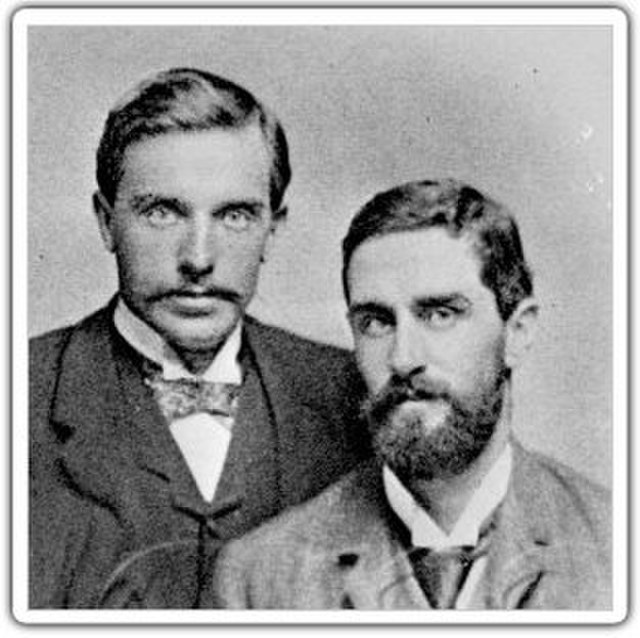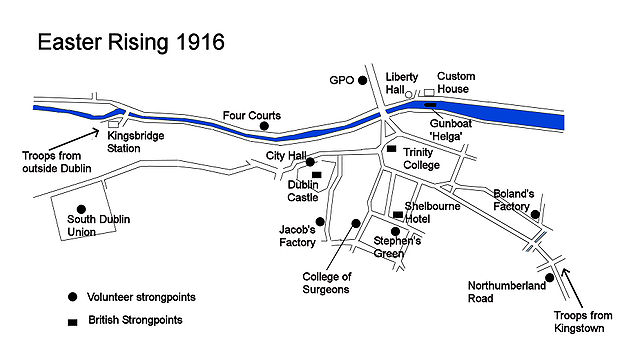Roger David Casement, known as Sir Roger Casement, CMG, between 1911 and 1916, was a diplomat and Irish nationalist executed by the United Kingdom for treason during World War I. He worked for the British Foreign Office as a diplomat, becoming known as a humanitarian activist, and later as a poet and Easter Rising leader. Described as the "father of twentieth-century human rights investigations", he was honoured in 1905 for the Casement Report on the Congo and knighted in 1911 for his important investigations of human rights abuses in the rubber industry in Peru.
Casement by Sarah Purser, 1914
c. 1910
Roger Casement (right) and his friend Herbert Ward, whom he met in the Congo Free State
2014 Faroe Islands stamp depicting Casement and Daniel Jacob Danielsen, his Faroese boat captain and assistant
The Easter Rising, also known as the Easter Rebellion, was an armed insurrection in Ireland during Easter Week in April 1916. The Rising was launched by Irish republicans against British rule in Ireland with the aim of establishing an independent Irish Republic while the United Kingdom was fighting the First World War. It was the most significant uprising in Ireland since the rebellion of 1798 and the first armed conflict of the Irish revolutionary period. Sixteen of the Rising's leaders were executed starting in May 1916. The nature of the executions, and subsequent political developments, ultimately contributed to an increase in popular support for Irish independence.
O'Connell Street, Dublin, after the Rising. The GPO is at left, and Nelson's Pillar at right.
Members of the Irish Citizen Army outside Liberty Hall, under the slogan "We serve neither King nor Kaiser, but Ireland"
The General Post Office in Dublin – the rebel headquarters
Positions of rebel and British forces in central Dublin








